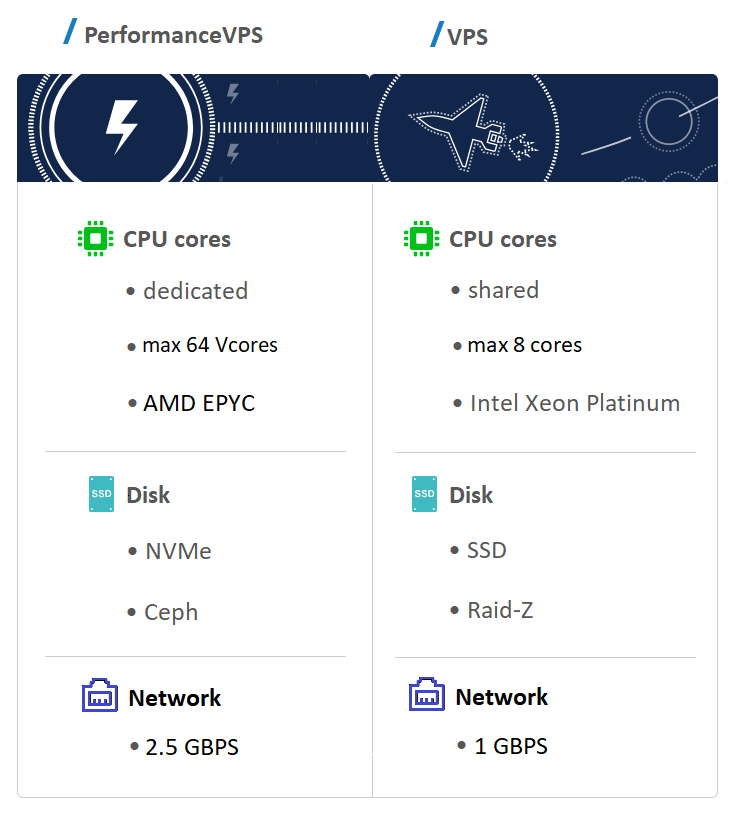This article relates to the VPS types as offered by TransIP before May 2025 and is only intended as a reference for customers who still use this type of VPS. The current VPS types can be found on this page.
When you order a VPS at TransIP, you can choose between a VPS and PerformanceVPS. Both are VPSs, but what makes the difference between a PerformanceVPS and a 'normal' VPS?
With a normal VPS we look for an ideal balance between price and quality. With a PerformanceVPS we look for the ideal balance between performance and reliability. For this distinction, we use dedicated vCPUs, distributed NVMe storage with 3 replicas and 2.5 Gbps bandwidth for Performance VPSs. In the image below we list these differences:
In addition to the speed advantage of NVMe over SSDs, using a Ceph configuration also reduces the chance that you will experience disruption as a result of an incident on a storage server. The network connection between the Ceph storage and Performance VPS is redundant and has a speed of 100Gbps.
Apart from the differences mentioned above, a VPS and Performance VPS are very similar. For example, both use the same features within the control panel, such as our backup and snapshot system. You can also expand them with additional services such as Big Storage and HA-IP.
This brings us to the end of this article about PerformanceVPSs.
Should you have any questions about this article, don't hesitate to contact our support department. You can reach them via the 'Contact us' button at the bottom of this page.





